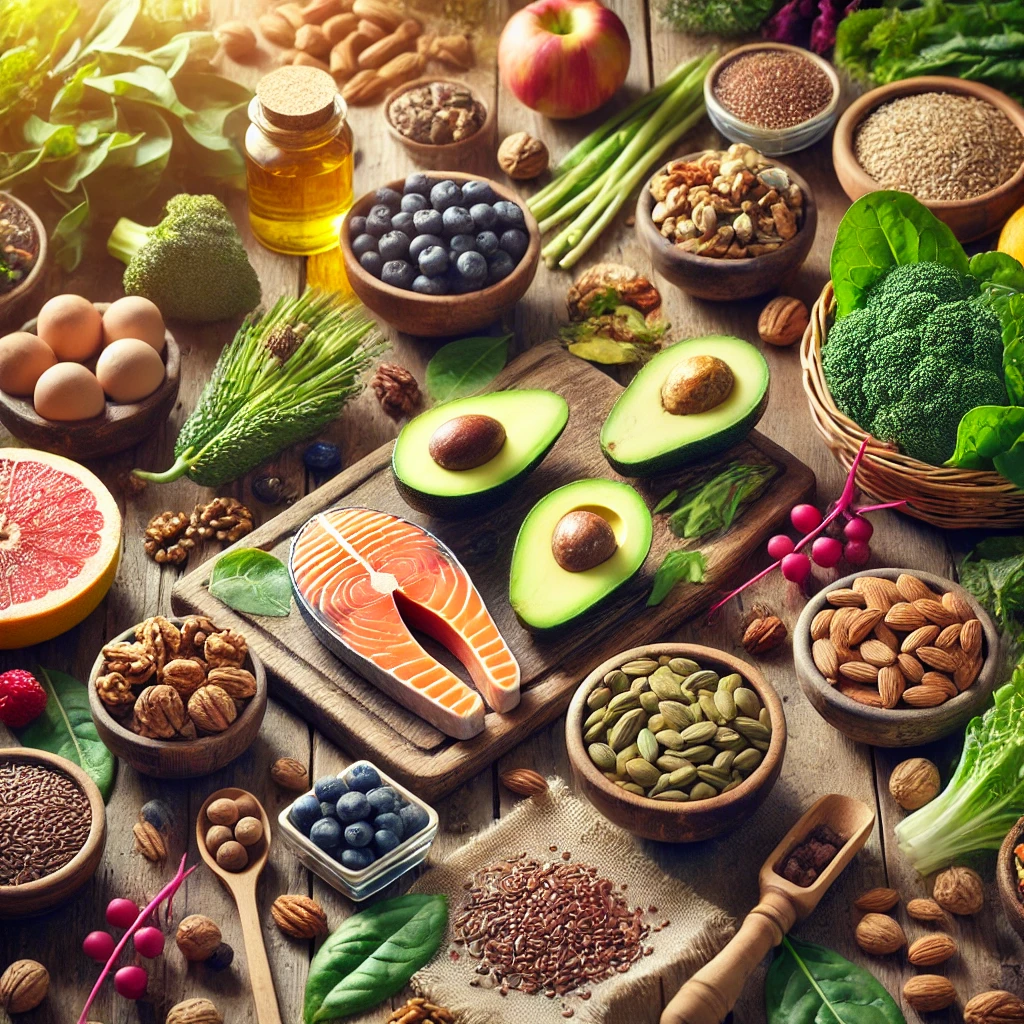Physical Address
304 North Cardinal St.
Dorchester Center, MA 02124
Physical Address
304 North Cardinal St.
Dorchester Center, MA 02124

Hormones play a crucial role in nearly every function of the body. From regulating metabolism and mood to controlling sleep and reproductive health, a delicate balance of hormones is essential for overall well-being. Unfortunately, modern lifestyles, stress, poor diet, and environmental toxins can disrupt this balance, leading to fatigue, weight gain, mood swings, and other health issues.
The good news? Nutrition can play a significant role in restoring and maintaining hormonal harmony. By incorporating certain nutrient-dense foods into your diet, you can naturally support your endocrine system, reduce inflammation, and promote overall wellness.
Here are 10 powerful foods that support hormonal balance and help you feel your best.

Cruciferous vegetables contain indole-3-carbinol and sulforaphane, compounds that support estrogen metabolism and help the liver detoxify excess hormones. These vegetables are also packed with fiber, which aids digestion and prevents hormonal imbalances related to gut health.
Hormones are made from fats, so consuming the right kinds of fats is essential for hormone production and function. Omega-3 fatty acids and monounsaturated fats found in these foods help reduce inflammation, support brain function, and stabilize blood sugar levels.
Flaxseeds are rich in lignans, plant compounds that act as phytoestrogens, helping to balance estrogen levels. They also provide fiber, which supports digestion and detoxification—both crucial for hormonal health.
Fatty fish are loaded with omega-3 fatty acids, which play a vital role in reducing inflammation and supporting hormone production. They also promote brain health and improve mood stability by regulating cortisol, the stress hormone.
Leafy greens are high in magnesium, a mineral essential for hormone regulation, particularly in reducing stress and supporting adrenal function. They are also packed with antioxidants that protect the endocrine system.
Berries are rich in antioxidants and fiber, both of which help reduce oxidative stress and regulate blood sugar levels. Stable blood sugar is essential for balanced insulin and cortisol levels.
Nuts and seeds provide essential fatty acids, zinc, and vitamin E, all of which support hormone production and immune function. Zinc, in particular, plays a role in progesterone production and fertility health.
Whole grains are high in fiber and B vitamins, which help support adrenal health and keep blood sugar levels steady. They are also beneficial for thyroid function and gut health.
Legumes are an excellent source of plant-based protein, fiber, and iron, all of which help regulate blood sugar and promote hormonal balance. They also contain phytoestrogens, which can help modulate estrogen levels.
Herbs and spices like turmeric, ginger, and garlic have anti-inflammatory and detoxifying properties that help regulate hormones and support liver function.
Balancing your hormones naturally doesn’t have to be complicated. By incorporating these foods that support hormonal balance into your diet, you can optimize your health, boost your energy levels, and enhance your overall well-being.
Along with a nutrient-dense diet, remember to prioritize sleep, manage stress, and engage in regular physical activity to support your hormonal health. Small daily changes can lead to significant long-term benefits!
Are you already including these hormone-balancing foods in your diet? Let us know in the comments below!